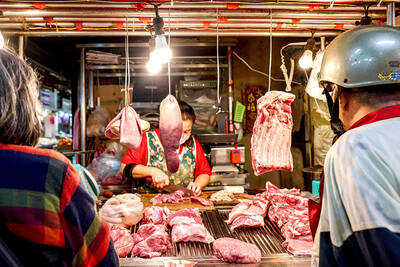The London transport system was heavily disrupted last month as thousands of revelers held an unauthorized “drinks party” on underground trains before an alcohol ban went into effect.
The key Circle Line, which serves some of the capital’s most exclusive districts, was shut down as thousands of people gathered for a booze-up on Tube trains after being rallied by social networking Web sites.
“There are problems on the Circle Line and it has been stopped,” a London Transport Police spokesman said.
David Mudkips, a 25-year-old computer programmer, described the experience on one of the trains packed with revelers as: “Like rush hour but fun. There were people’s sweaty armpits in my face, but I didn’t care because I was drinking.”
Police made at least six arrests as the behavior of the crowds became increasingly boisterous.
Thousands of people had signed up for the party on Facebook sites with names like The Booze Tube and One Final Tube Booze Party.
From June 1, anyone caught drinking from or even carrying open containers of alcohol will be ejected from trains and buses.
Newly elected London Mayor Boris Johnson introduced the alcohol ban in one of his first acts in office.
Johnson said: “I firmly believe that banning the drinking of alcohol on London’s public transport will create a better traveling environment for all Londoners.”
The ban has been criticized by the railworkers’ union RMT as another burden on its overworked members.
The union’s general secretary, Bob Crow, warned it could put staff in greater danger of assault.
“Violence against Tube staff is already a major problem, particularly from people who have been drinking, but now our members will be expected to approach people drinking and stop them or even remove them from the train or station,” he said.(AFP)
上個月倫敦數千名狂歡客趕在新禁酒令生效前夕,在地下鐵內舉辦了一場「狂飲派對」,這場未經申請的派對嚴重癱瘓了倫敦的大眾運輸系統。
數千人透過社交網路串連號召,聚集在倫敦地鐵車廂內縱酒狂歡,導致行經倫敦數個高級地段的主要「環狀線」一度關閉。
倫敦交警大隊發言人說:「環狀線出現一些狀況,所以已經停駛。」
二十五歲的電腦工程師大衛.馬其斯當時就在其中一節滿載狂歡客的車廂內,他形容:「現場的情況和上下班尖峰時段很像,但氣氛歡樂。別人汗涔涔的腋下就貼在我臉上,可是我不在乎,因為我喝醉了。」
隨著狂歡客開始出現脫序的行為,警方逮捕了至少六人。
數千名網友在名為「地鐵狂飲」和「最終地鐵痛飲派對」的Facebook網站上報名,參加這場派對。
從六月一日起,在地鐵或公車上喝酒或攜帶開瓶的酒精飲料者,將被逐出車外。
倫敦新任市長包里斯.強森頒布這條禁酒令,是他就任後推動的首波政策之一。
強森說:「我堅信,禁止乘客在倫敦的大眾運輸工具上飲酒,將可為所有倫敦客創造一個更好的交通環境。」
倫敦鐵路工會RMT批評這條禁令對他們工作負擔已經過重的同仁來說,是另一項重擔。
工會秘書長巴伯.克勞警告說,這可能置同仁的人身安全於更大的險境。
他說:「對地鐵站同仁暴力相向早就是的一大問題,要處理喝了酒的乘客尤其困難;但現在我們的同仁必須主動上前制止喝酒的乘客,甚至還要請他們離開車廂或車站。(法新社�翻譯:袁星塵)

Pigs that are resistant to a deadly viral disease have been created by scientists at Edinburgh’s Roslin Institute. The gene-edited animals remained healthy when exposed to classical swine fever (CSF), a highly contagious and often fatal disease. The virus was eradicated in the UK in 1966, but there have been several outbreaks since and it continues to pose a major threat to pig farming worldwide. “Classical swine fever is a devastating disease for livestock and farmers as we saw with the outbreak in the UK, 25 years ago,” said Helen Crooke, mammalian virology deputy leader at the Animal and Plant Health Agency

Have you ever seen a circular intersection where cars continuously flow in one direction around a central island? That is a “roundabout,” a well-known alternative to traditional intersections. Drivers enter and exit at different points without relying on traffic lights. Their primary purpose is to improve traffic flow and minimize the likelihood of high-speed collisions, particularly dangerous T-bone and head-on crashes. Roundabouts have existed and been implemented for over a century. In the 1960s, the modern roundabout emerged in the UK, with added rules for yielding. Unlike intersections with red lights, roundabouts allow vehicles to continue moving at a

對話 Dialogue 清清:明天我想請一天假。 Qīngqing: Míngtiān wǒ xiǎng qǐng yì tiān jià. 華華:為什麼?這個月的假已經很多了,你還要請假啊? Huáhua: Wèishénme? Zhège yuè de jià yǐjīng hěn duō le, nǐ háiyào qǐngjià a? 清清:因為明天是農曆九月初九重陽節,重陽節是老人節,我想陪我阿公阿嬤去爬山,而且家裡也要拜祖先,請假比較方便。 Qīngqing: Yīnwèi míngtiān shì nónglì jiǔ yuè chū jiǔ Chóngyáng Jié, Chóngyáng Jié shì Lǎorén Jié, wǒ xiǎng péi wǒ āgōng āma qù páshān, érqiě jiālǐ yě yào bài zǔxiān, qǐng jià bǐjiào fāngbiàn. 華華:了解,是應該陪老人出去走走。阿公阿嬤應該會拿到政府發的紅包吧? Huáhua: Liǎojiě, shì yīnggāi péi lǎorén chūqù zǒuzǒu. Āgōng āma yīnggāi huì nádào zhèngfǔ fā de hóngbāo ba? 清清:有啊!65歲以上的長輩都會領到敬老金,只是每個縣市給的數字不太一樣,年紀越大,拿到的會越多喔! Qīngqing: Yǒu a! Liùshíwǔ suì yǐshàng de zhǎngbèi dōu huì lǐngdào jìnglǎojīn, zhǐshì měi gè xiànshì gěi de shùzì bútài yíyàng, érqiě niánjì yuè dà, ná dào de huì

A: So you’re reading Jin Yong’s martial arts novel again? B: Yup, Jin’s novels are so fascinating, especially the trilogy: “Legends of the Condor Heroes,” “Return of the Condor Heroes,” and “Heaven Sword and Dragon Saber.” A: The late novelist published his first story in 1955, which means this year marks the 70th anniversary of his “wuxia” world. B: Wasn’t an English version of “Legends of the Condor Heroes” also released in 2018? A: Yes, but the debate over the translation of kung fu moves continues — like the evil move “Nine Yin Skeleton Claw.” A: 你又在重讀金庸的武俠小說啦? B: